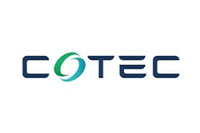ERG Denies Sale Talks After Reported US$5 Billion Buyout Offer from US Investor
Despite the rumors, ERG maintains that no sale discussions for the company are currently taking place.

US investor James Cameron has reportedly made a US$5 billion offer to acquire Eurasian Resources Group (ERG), a major Kazakhstan-backed mining company central to the country’s rare earths expansion
However, the company maintains that no sale discussions are taking place.
A letter reviewed in a Reuters exclusive shows that Cameron, a former chair of London-based miner Petropavlovsk, proposed the multibillion-dollar buyout as ERG prepares to play a leading role in Kazakhstan’s rare earths ambitions.
The offer comes as western governments increasingly look for alternatives to China’s dominance in the global supply of critical materials used in electronics, defense and clean energy technologies.
“The financing will come from a combination of my own funds, as well as equity contributions from other investors in the United States, and possibly Australia and the Middle East,” Cameron reportedly said in the letter to ERG's board.
Sources familiar with the matter say Goldman Sachs (NYSE:GS) is in early talks to advise on the proposed transaction.
Cameron, who shares a name with an unrelated acclaimed film director, has shown interest in Kazakhstan’s untapped rare earths deposits, coincidentally aligning with US efforts to secure its supply chain amid a deepening rift with Beijing.
But, as mentioned, ERG has categorically denied any negotiations are underway. In a statement released on Monday (April 21), Chairman and CEO Shukhrat Ibragimov said that “there are no negotiations on the sale of ERG,” and that “the company’s management is fully committed to further consistent, sustainable development of the Group.”
ERG emphasized that it remains focused on implementing a long-term growth strategy adopted at the end of 2024.
ERG, headquartered in Luxembourg and 40 percent owned by the Kazakh government, is one of the world’s largest producers of copper, cobalt, aluminum and iron ore. It was privatized in 2013 in a US$4.5 billion buyout by its three founders and the state. Following the recent death of board chairman and company co-founder Alexander Mashkevich this past March, only one of the original founders, Patokh Chodiev, remains a shareholder of ERG.
Cameron’s unsolicited bid arrives at a pivotal moment for Kazakhstan’s mining ambitions.
Earlier this month, Kazakh geologists announced the discovery of a massive rare earths deposit that is estimated to contain resources of over 20 million metric tons. The find could potentially catapult the Central Asian nation into the ranks of the top three global holders of rare earth reserves, alongside China and Brazil.
Kazakhstan is now aiming to increase its output of rare and rare earth metals by 40 percent by 2028, with ERG expected to play a prominent role in the task. Prime Minister Olzhas Bektenov has also pledged to increase transparency around the country’s mineral reserves, which were previously kept secret since Soviet times.
ERG was once responsible for producing one-fifth of the world’s gallium, a critical component in semiconductors. That output ceased in 2012 when China flooded the market, depressing prices.
The strategic importance of such materials has re-emerged since China banned exports of gallium to the US in a tit-for-tat crackdown between Washington and Beijing over chip technology.
At the same time, ERG is undergoing a strategic overhaul of its African operations to reduce costs and refocus its investment priorities. The company is reviewing its mining licenses in the Democratic Republic of Congo (DRC) and weighing the potential sale of assets in Mozambique, according to Nicolas Treand, CEO of ERG Africa.
Speaking to Bloomberg at the Mining Indaba conference in Cape Town, South Africa, in February, Treand noted that the company is seeking to “clean house in the DRC.”
“The market is pretty, pretty bad and pretty depressed and I think it’s going to be depressed for the next two to three years,” he said, citing a global glut in cobalt that has driven prices of the battery metal to record lows.
Don't forget to follow us @INN_Resource for real-time news updates!
Securities Disclosure: I, Giann Liguid, hold no direct investment interest in any company mentioned in this article.



